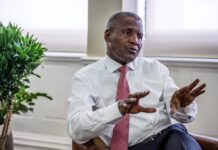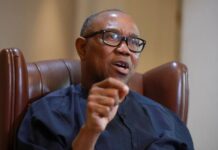Officials from the electoral commission of Ghana plan to meet the chiefs and elders as well as the media next week as part of an engagement program to educate the public ahead of the December 7 presidential, parliamentary and local elections.
The electoral commission says officials will go across the country to meet and explain the electoral process and answer voter concerns.
Time with commissioners
Called “time with the commissioners,” the media engagement was recently launched in the capital, Accra, when the chairperson of the electoral commission, Charlotte Osei, met with editors and media representatives to underscore the measures the election body would deploy to ensure a transparent, peaceful and credible general election.
“As part of our communication strategy and the voter education, we have a series of engagements with our stakeholders across the country,” said Eric Dzakpasu, spokesman for the electoral commission.
“And next week on the 26 October 2016, we are scheduled to meet the Ashanti Regional House of Chiefs to engage with them, and at that engagement we are going to explain our activities so far and our preparedness and our preparations toward the elections on the 7th of December,” he added.
He also says the electoral commission is engaging young people on social media platforms, including Facebook and Twitter, to explain the electoral processes as part of its voter education campaign.
Critics say the electoral commission has been ineffective in its plans to administer this year’s vote.
Critics: It’s too late
Peter Mac Manu, the national campaign manager for main opposition leader Nana Addo Dankwa Akufo-Addo from the New Patriotic Party (NPP), says the electoral commission has been late in implementing its strategic plans to organize the elections.
“It’s rather late because if you look at when they launched their strategic plan, a strategic plan for two, three years should have been launched three years ago, so that it is implemented at this point in time. But in any case, better late than never. … Elections have timelines and you have four years to deal with an election program, so, I can’t understand why we have to run around last minute,” local media quoted Manu as saying.
Dzakpasu disagreed. He says the electoral commission’s timetable is intact and on course for the December elections.
Dzakpasu says recent high marks that independent think tanks in the country have given the election commission show prospective voters have confidence in the electoral commission’s ability to organize credible polls.
He says the electoral commission had to amend its timetable after parliament turned down a proposal to organize the elections on November 7.
“The electoral commission is not distracted in the least. … When that proposal was rejected by parliament, we came up with another timetable gearing toward the 7th of December, and ever since we came out with the [new] timetable, we have been on course, we are working feverishly,” Dzakpasu said.
Dzakpasu expressed surprise at politicians whom he says accuse the electoral commission of favoritism. He says the political parties discuss issues and concerns with officials of the electoral commission at the Inter-Party Advisory Committee (IPAC) meetings.
“That’s the most interesting and intriguing part of our relationship with some of the political parties. … We now meet once every month according to a pre-arranged timetable and very interesting enough we agree at the IPAC more than we disagree,” he said.
“But for some reason best known to some politicians, I think it is a deliberate attempt to run down the commission. We agree on issues [but] as soon as we leave IPAC, what they come out to say sometimes is completely opposite to what we have agreed on at IPAC,” Dzakpasu said.
Ballot to be set
After a court rules on who is qualified for the ballot, he said the electoral commission will hold a secret ballot for qualified presidential candidates to choose their positions on the paper ballots to be used for the presidential vote The court has set October 25 to begin hearing petitions.
Dzakpasu’s remarks came after the electoral body Thursday completed the secret balloting for places on the parliamentary ballot paper to be used for the polling. He says the positions for the parliamentary election are:
1. The Great Consolidated Popular Party (GCPP)
2. Progressive People’s Party (PPP)
3. National Democratic Congress (NDC)
4. United Peoples Party (UPP)
5. New Patriotic Party (NPP)
6. The National Democratic Party (NDP)
7. Independent People’s Party (IPP)
Source-VOA NEWS























